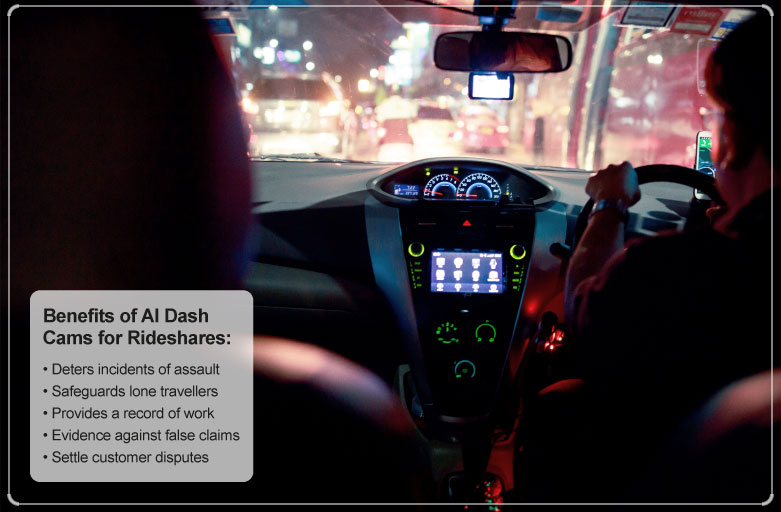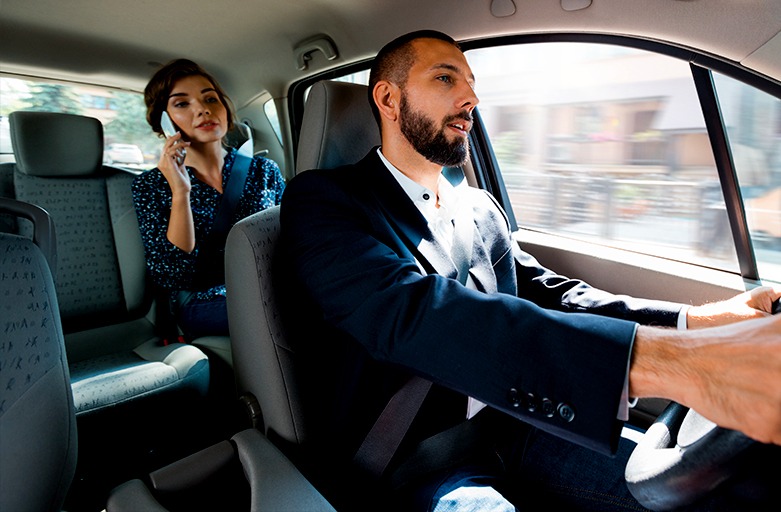Ridesharing companies and their drivers provide a smart and convenient answer to some of the 21st century’s most pressing transportation problems. With millions of worldwide users, Uber, Lyft, DiDi, and their rivals provide a valuable service, but the disruptive nature of it can present serious challenges relating to unprofessional and even criminal behavior from a small minority of drivers. By investing in the latest dash cams for ridesharing vehicles, operators can be far better equipped to protect passengers, drivers, and the reputation of the company.

Like so many other disruptive technologies, it’s hard to imagine a world without ridesharing and ride-hailing companies such as Uber. Founded in 2009, Uber has grown to account for a staggering 5.23 billion rides globally in 2018, with the company now operating in over 10,000 towns and cities worldwide. For millions of city-dwellers, Uber and its competitors have become a popular choice for commuters, beating more traditional transportation options in terms of convenience, value, and integration with our increasingly digitized lives.
Yet the nature of the ridesharing business model means that millions of us end up in close proximity with a complete stranger on a daily basis, meeting within the confined space of a vehicle, often alone, at night, or in quieter parts of town. While the vast majority of ridesharing trips pose absolutely no threat, the potential for things to go wrong remains a concern.

Straight to Video
While similar problems could potentially occur in taxis and other forms of public transport, the less regulated licensing regime for rideshare drivers usually results in increased scrutiny when an incident occurs. Moreover, the disruptive and sometimes controversial nature of ridesharing means that a firm’s reputation can be somewhat fragile. For these reasons ridesharing companies need to be increasingly focused on safeguarding passengers and drivers.
The introduction of fleet-ready AI dash cams that include front and rear-facing cameras is a logical step in the right direction, offering the ability to simultaneously record both the road ahead and what happens inside the vehicle – a major advantage when it comes to ensuring basic customer and driver safety.
Front-facing cameras provide footage that proves where the car went, how it was driven, and any incidents that may have happened while on the road. In the event of a traffic incident, it can shed light on which driver was at fault, accelerating insurance claim procedures and helping eliminate false claims.
The technology is also improving. Modern AI dash cams integrate HDR-capable sensors that capture improved detail in darker cabin interiors, while features like infrared lighting offer a solution to night-time rides. Interior footage shows how drivers and passengers interact, and can capture any disagreements, arguments and even possible assaults. Where audio recording is permitted (most countries outside the US for example), the camera can record cases of verbal abuse – clarifying disputes about routes, destinations, payments, or ratings.
In all cases, the presence of an AI dash cam helps improve driver and rider behavior, deterring the likelihood of abusive, violent, or socially unacceptable behavior.
Protected by the Cloud
Cloud-connected AI dash cams are increasingly becoming the norm, combining the features of regular dash cams with real-time monitoring and feedback to fleet managers via 4G connectivity and GPS data. But it doesn’t stop there. More sophisticated devices open up new ways to improve operational efficiency. For example, CAN Bus data can provide useful information to help improve routing and efficiency, helping to reduce fuel costs for example while also improving service.
For ridesharing companies, AI dash cams offer an affordable and reliable way to protect drivers, riders, and their own reputation. It’s easy to see how investment in the devices can encourage higher operational and safety standards in their vehicles and provide an effective tool for enforcing policy and investigating complaints.
The VIA Mobile360 D700 AI Dash Cam combines cutting-edge AI-powered accident prevention and driver monitoring features with dual 1080p cameras, ultra-reliable 4G LTE connectivity, and seamless cloud integration to provide a robust and high-performance dual-camera device that is ideal for fleet management applications such as taxis and ride-hailing services.
VIA Mobile360 fleet management solutions for taxis and ridesharing services are ideal for a complete array of vehicle safety and video telematics applications. These solutions offer flexible customization, combining ultra-reliable systems with leading-edge driver assistance, driver monitoring, situational awareness, and cloud integration technologies options to meet specific deployment requirements.
